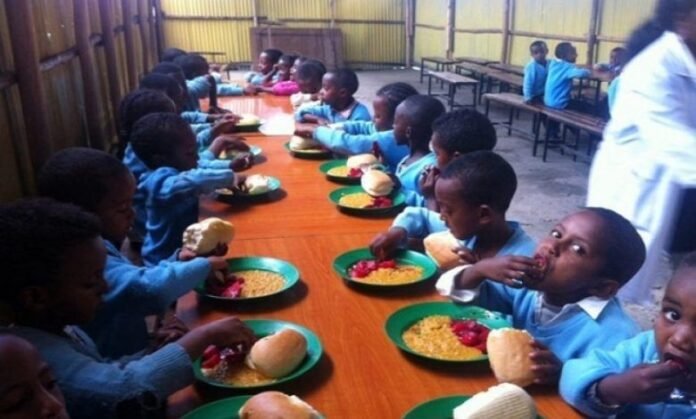About N1 trillion is required yearly for school feeding, the Federal Government said yesterday.
Minister of State for Humanitarian Affairs and Poverty Reduction, Dr. Tanko Sununu made this known at a stakeholders’ meeting on the relaunch and scaling of the Renewed-Hope National Home-Grown School Feeding Programme (RH-NHGSFP in Abuja.
The minister, in a statement by the Head of Communication and Public Relations of the National Social Investment Programme Agency (NSIPA), Attari Hope emphasized the need for substantial funding, stating that approximately N900billion to N1trillion will be required annually to provide nutritious meals for primary school pupils in grades 1 to 3, with a target of three meals per week.
He highlighted the importance of collaboration, stating that beyond Federal Government appropriations, additional funding sources were crucial for the successful implementation of the programme.
Replying , the National Coordinator and CEO of the NSIPA, Dr. Badamasi Lawal, stated that potential funding sources included; presidential support, donations and grants from international donors and key stakeholders, as well as 5 per cent of recovered repatriation funds.
Dr. Badamasi stated: “As stakeholders, your technical expertise, strategic insights, and financial support are invaluable. Through this engagement, we aim to identify collaborative pathways that will strengthen and sustain the programme’s goals in alignment with the Sustainable Development Goals—particularly in eradicating hunger, ensuring quality education, and alleviating poverty.”
He explained that the RH-NHGSFP embodies the Renewed Hope Agenda of President Bola Tinubu whose agenda seeks to address critical national challenges through inclusive, people-centered solutions.
“Through this programme, we will tackle malnutrition, improve school attendance, empower smallholder farmers, and stimulate local economies—one nutritious meal at a time”.
He also said the enhanced model of the programme promises improved efficiency, transparency, inclusiveness, and measurable impact.
“We hope that it will not only serve as a national success story but also as a model for other countries seeking sustainable school feeding systems”.
![]()










